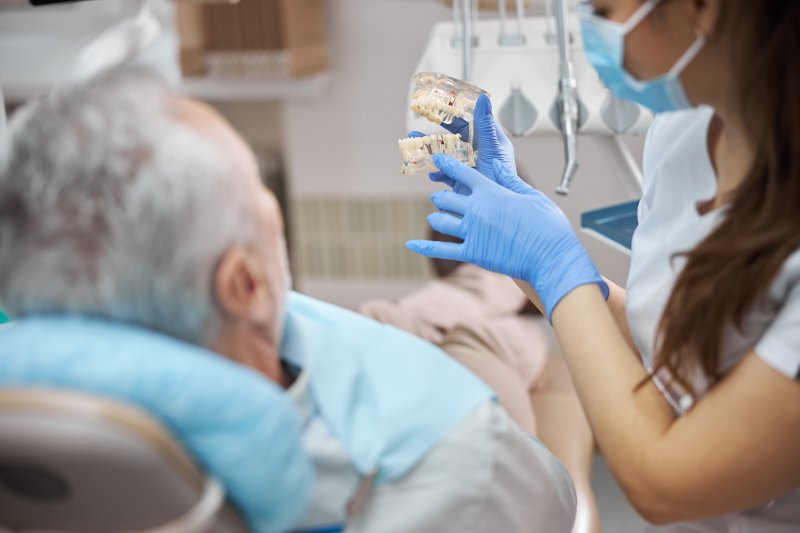
You want to replace your missing teeth with dental implants. You’ve done your research and discovered just how beneficial these artificial teeth can be as well as how long they can remain in place. Everything you know about them causes you to feel more certain that these prosthetics are the right ones for you. But do you know that you might need preliminary treatments before dental implants? Find out which ones you might require before enjoying life with a permanent set of teeth.
What Can Cause a Person to Need Preliminary Treatments?
There are many reasons why a person may not be suitable for dental implant surgery right away. In most cases, individuals with one or more missing teeth can eventually receive these permanent prosthetics, but they may be required to undergo various preliminary treatments beforehand.
During a scheduled consultation, an implant dentist will examine the individual’s smile to find out if dental decay, gum disease, or enough jawbone density exists. It is essential that interested individuals have good oral hygiene and enough bone support to ensure success once implants are in place. Otherwise, they might fail.
Which Preliminary Treatments Are Most Commonly Recommended?
When it comes to identifying which treatment options are necessary, a thorough examination must first occur. After capturing diagnostic images and going over a person’s oral and overall health history, it can be determined if any of the following will be required for future dental implant placement:
- Bone Grafting – This process serves to create a denser jawbone so that implant posts can fuse with surrounding tissues and create a firm foundation for the custom restoration. By adding grafting materials from an individual’s body (commonly the roof of the mouth) to the existing bone, the two will integrate over several months and create a more durable and stable jawbone.
- Periodontal Therapy – If gum disease is present before dental implant surgery, it will be essential to remove any bad oral bacteria and plaque from the soft oral tissues. Not only can this affect natural teeth, but it attacks the tissues to cause inflammation and infection. If a dental implant is put into place before it is treated, it will cause the implant to fail.
- Tooth Extraction – Maybe a person has some existing tooth decay that cannot be treated by other means. If the tooth is no longer viable, we may be required to remove it before it has the chance to impact nearby healthy teeth.
- Sinus Lift – Similar to a bone graft, this process is performed in the upper arch, toward the back of the mouth, near the sinus cavity. When a tooth must be removed, it can leave a large gap. Placing a dental implant will grant it nothing to fuse to, not the mention the danger of an implant protruding into the sinus cavity. With a sinus lift, we can incorporate grafting materials into the area and push the sinus cavity upward so that everything fuses nicely.
Even if a patient does require one or more preliminary treatments before having dental implants, it is worth the time and investment to ensure that new teeth remain in place for decades.
About the Author
Dr. Moji Chandy has been a practicing dentist since 2006, earning her dental degree from the NYU College of Dentistry. Opening Aegis Dental in 2012, she remains dedicated to honing and refining her skills to ensure she provides her patients with the most advanced and up to date dental care available. Partnering with local specialists and implant dentists in the area, she works with patients to deliver beautiful results when it comes to receiving dental implants. Also, if preliminary treatments are required before surgery, she can assist in preparing smiles so they are ready for the next stage of care. If you are unsure whether you can receive permanent prosthetics, contact us at (972) 492-6700.

